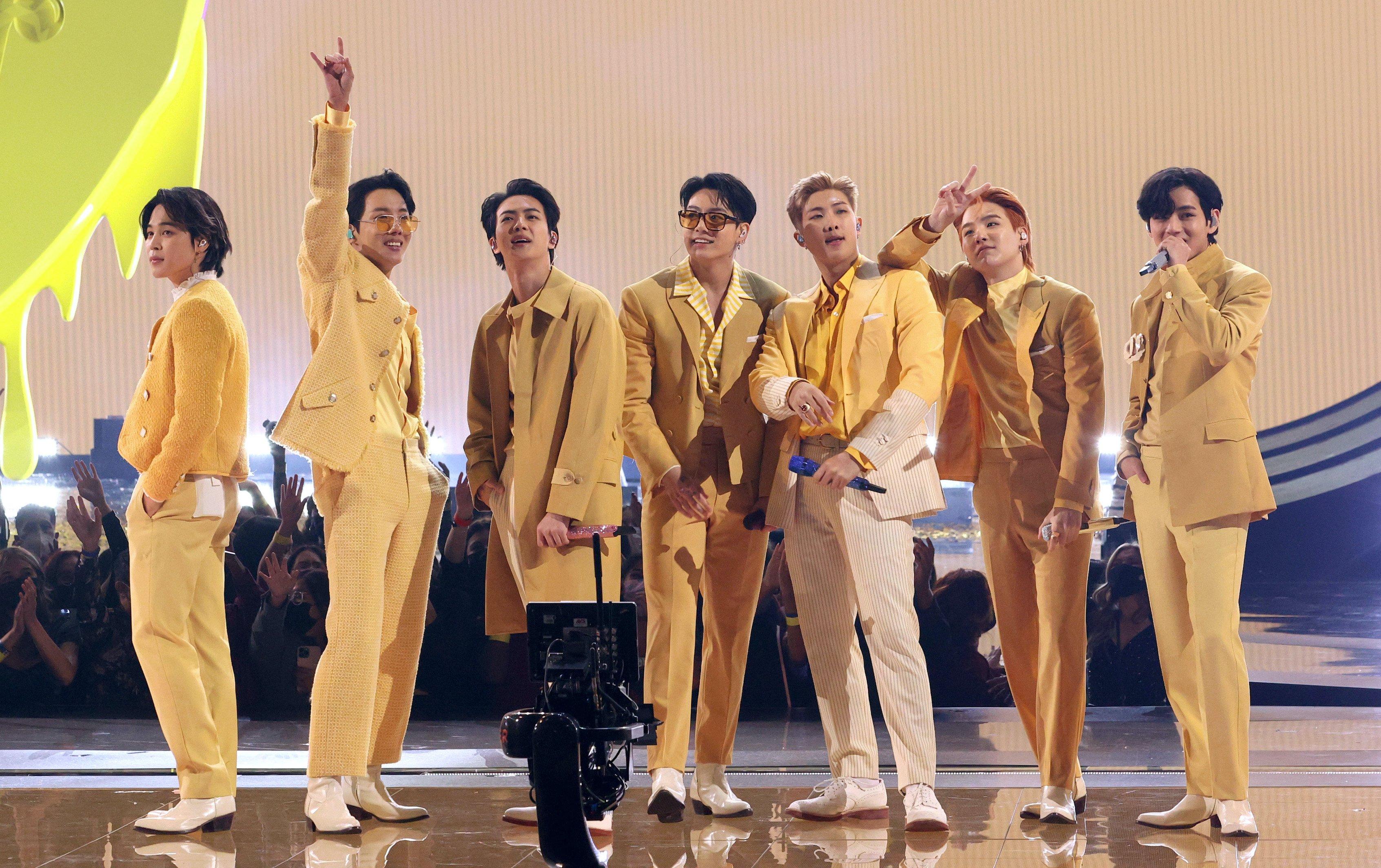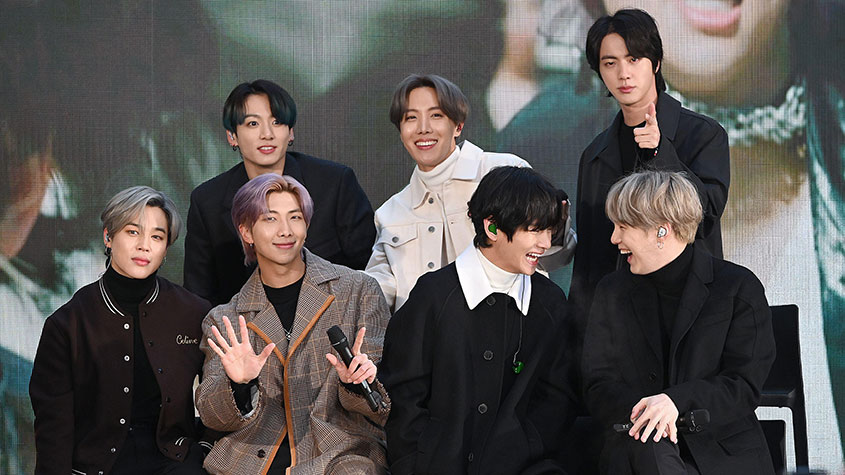Entertainment
What Does BTS Stand For? A Comprehensive Look at the Name and Its Legacy

Introduction
When BTS is mentioned, fans immediately think of the globally renowned South Korean boy band that has captured hearts and topped the charts. However, what does BTS stand for? This simple question opens the door to a rich history and legacy reflecting the group’s artistic vision and cultural impact. In this article, we’ll delve into the meaning behind BTS, its evolution over the years, and the profound legacy it has created within the music industry and beyond.
What Does BTS Stand For?

BTS, originally an acronym for “Bangtan Sonyeondan” (방탄소년단), meaning “Bulletproof Boy Scouts,” symbolizes the group’s mission to protect youth from societal pressures. As they gained global recognition, they adopted a broader interpretation: “Beyond the Scene,” reflecting their desire to transcend musical boundaries and connect with fans worldwide. Through their powerful music and advocacy for self-acceptance and social change, BTS has inspired individuals to embrace their true selves and champion positive transformation.
The Name: BTS
BTS originally stands for Bangtan Sonyeondan (방탄소년단), which translates to “Bulletproof Boy Scouts” in English. This name was chosen to symbolize the group’s mission to protect the youth from the challenges and prejudices of the world. The concept of “bulletproof” conveys a strong sense of resilience and determination, setting the tone for their music and message.
A Shift in Meaning
As BTS grew in popularity, they adopted a more global approach. In 2017, they redefined their name as “Beyond the Scene.” This change reflects their desire to move beyond the confines of typical music industry standards and connect with a broader audience. The dual meaning of their name symbolizes their commitment to their South Korean roots and their ambition to resonate with fans worldwide.
The Journey of BTS

To fully appreciate what BTS stands for, it’s essential to understand the journey the group has taken since its inception.
Formation and Early Years
BTS debuted on June 13, 2013, under Big Hit Entertainment, now known as HYBE Corporation. Initially, they were labeled as a hip-hop group. Still, their musical style has evolved significantly over the years, encompassing various genres such as pop, rock, and R&B. Their debut single, “No More Dream,” tackled issues of societal pressure and the pursuit of dreams, reflecting the group’s commitment to addressing real-life issues.
Rapid Rise to Fame
BTS’s breakthrough came with the release of their album “Wings” in 2016, which marked a pivotal moment in their career. The album showcased their growth as artists and resonated with audiences on a deeper level. The track “Blood Sweat & Tears” not only topped the charts but also introduced themes of passion, sacrifice, and the complexities of youth.
Themes and Messages
A commitment to authenticity and vulnerability lies at the core of BTS’s music. The group often addresses themes such as mental health, self-acceptance, and the struggles of youth. This approach has garnered them a dedicated fanbase known as ARMY, which stands for “Adorable Representative M.C. for Youth.”

Mental Health Advocacy
One of BTS’s significant contributions to society is its advocacy for mental health awareness. They have spoken candidly about their struggles with anxiety, depression, and self-esteem. Their song “The Truth Untold” is a poignant reminder of the emotional battles many face but are often afraid to share.
Cultural Impact
BTS has transcended music to become a cultural phenomenon, influencing fashion, social issues, and politics.
Breaking Language Barriers
BTS’s global success has proven that language is not a barrier to music. Their ability to connect with international audiences has opened doors for K-pop artists worldwide. The group sings primarily in Korean but has released English versions of some of their biggest hits, including “Dynamite” and “Butter.” Their success has paved the way for a new era of K-pop, making it a global genre that appeals to diverse audiences.
Social Movements
BTS has actively participated in social movements and campaigns, leveraging its platform to raise awareness about bullying and mental health issues. In 2020, they partnered with UNICEF for the “Love Myself” campaign, promoting self-love and combating violence against children and teenagers. This initiative exemplifies BTS’s commitment to using its influence for positive change.
The Legacy of BTS

As BTS continues to evolve, its legacy becomes increasingly significant. They have not only transformed the music industry but have also influenced countless fans and artists worldwide.
Musical Innovation
BTS’s experimentation with different genres and styles has set a new standard for creativity in the music industry. Their ability to blend various musical elements while maintaining a distinct identity is a testament to their artistry. Tracks like “Idol” and “ON” showcase their willingness to push boundaries and explore new sounds.
Empowering the Youth
Through their music and messaging, BTS has empowered young people to embrace individuality and pursue their dreams. The phrase “Love Yourself,” often repeated in their songs and messages, encourages fans to accept themselves and strive for self-improvement.
Conclusion
In answering the question, “What does BTS stand for?” we find much more than a simple acronym. BTS symbolizes resilience, creativity, and a commitment to authenticity. Their evolution from Bangtan Sonyeondan to Beyond the Scene encapsulates their journey as artists striving to break barriers and connect with people worldwide. As they continue to leave their mark on the music industry and society, BTS’s legacy is a powerful reminder of art’s impact in shaping culture and inspiring change.
Through their music, activism, and connection with fans, BTS stands as a testament to the transformative power of music, encouraging us all to embrace our true selves and strive for a brighter future.
Stay ahead of the curve with the freshest news updates by exploring TodayFirstMagazine!






